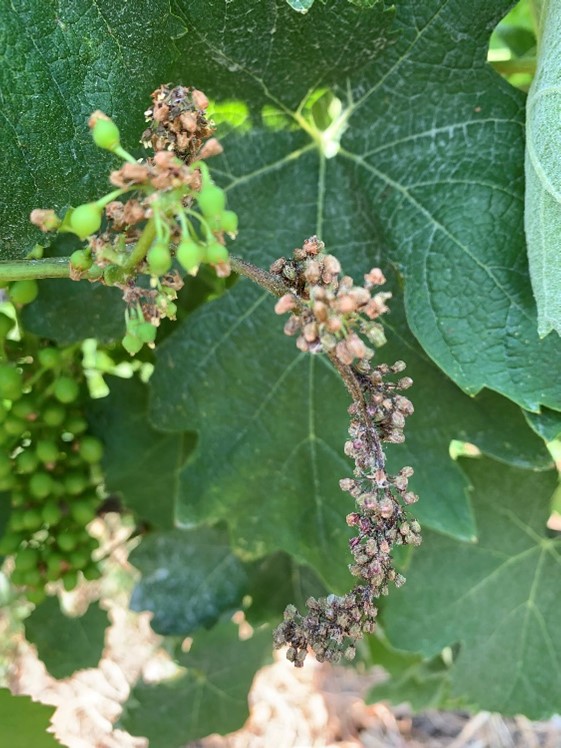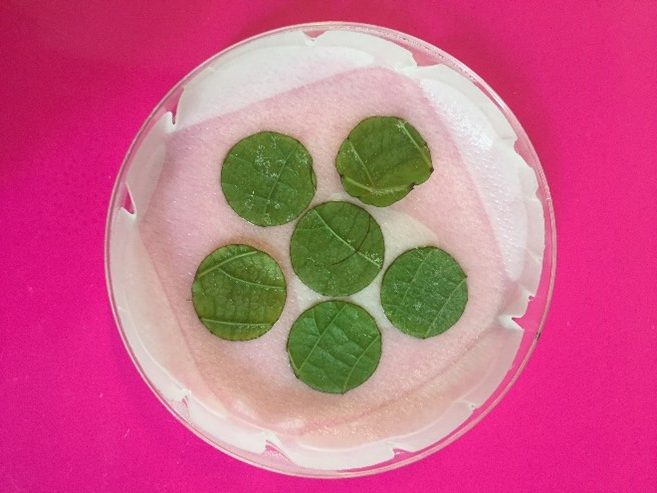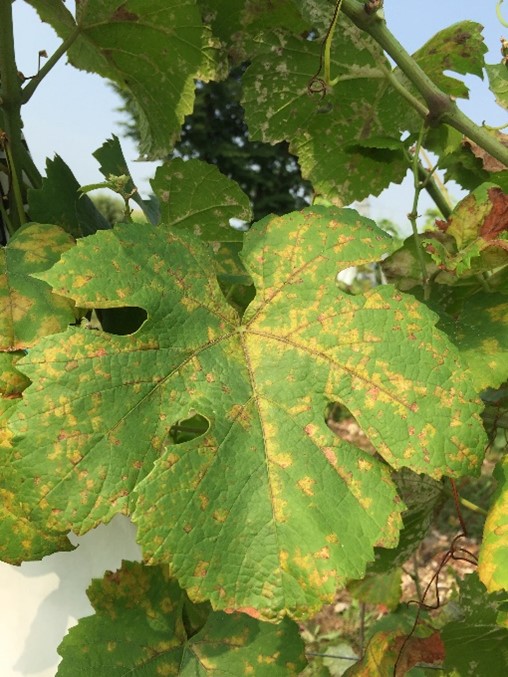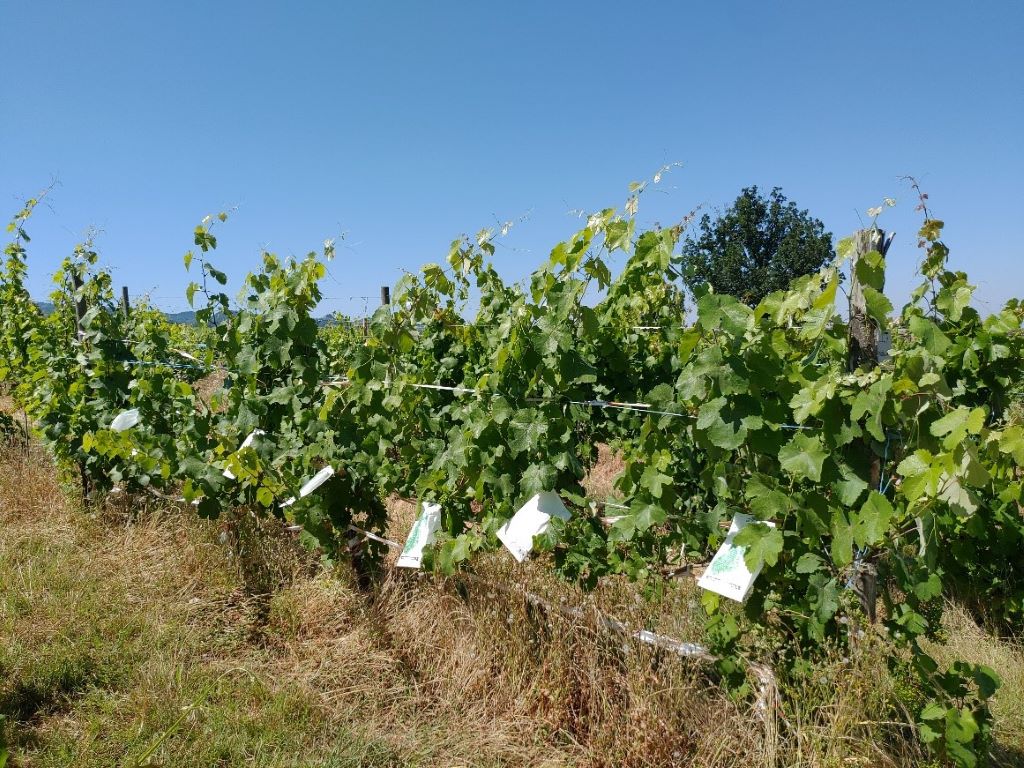Mgaloblishvili plants in field collection, under study for next experiment on susceptibility genes to downy mildew. Images courtesy University of Milan
A new genome of the Georgian grapevine variety Mgaloblishvili has just been published— the first-identified Vitis vinifera variety resistant to downy mildew.
The genome was published by the University of Milan, in collaboration with University of California Davis, the Caucasus International University, and KeyGene.
The genome, which was sequenced as a result of KeyGene’s DNA-day contest in 2021, was studied to characterise its resistance loci, gaining new resources to fight the disease affecting grapevines.
The Mgaloblishvili genome, sequenced using PacBio HiFi technology, will be the first reference for the varieties originating from the Caucasus, one of the centres of the domestication of grapevines.

Valentina Ricciardi, a former PhD student who worked on the Mgaloblishvili project, explained that Mgaloblishvili originates in the Caucasus region of Georgia, one of the two places where grapevines were domesticated.
“It is known for its resistance to downy mildew, a trait usually missing in the other V. vinifera varieties employed in viticulture production,” said Ricciardi. “Analysing the genome of this unique variety can allow us to gain new inspiring insights into plant-pathogens interaction, for the better utilisation of resistance traits in breeding programs.”
The young researcher recalls how winning KeyGene DNA-Day contest set the project in motion.
“The selection of Mgaloblishvili as the winner of the contest allowed us to obtain its High-Molecular Weight (HMW) DNA, without spending time and efforts into a tricky procedure to perform on a species like grape.”

“Once the DNA was available, it worked as a symbol of the research community interest in this peculiar variety, propelling us into the further steps necessary to adequately explore it,” continued Ricciardi.
Senior researcher Gabriella De Lorenzis, who supervised Ricciardi during her studies, explained how the work of the team studying the Mgaloblishvili grapevine started out.
The team, which also comprise the Plant Pathology group (represented by senior researcher Silvia Laura Toffolatti), began work around 20 years ago, in a collaboration with two Georgian research partners: the Faculty of Viticulture and Winemaking, Caucasus International University, and the National Wine Agency of Georgia, both in Tbilisi.
“Obtaining Mgaloblishvili’s genome made it possible to identify crucial genetic differences between the Georgian variety and the other cultivated varieties,” said De Lorenzis. “In this way it becomes possible to better understand and decipher this unique reservoir of genetic variability, making these precious resources available to scientist and breeders.”
Before Mgaloblishvili, no other V. vinifera variety from the domestication centre was sequenced and compared to other available genomes.

“The Georgian variety genome will serve as a reference for grapevine studies focused on the identification and understating of important agronomical traits for the viticulture sector, with huge implications for their applicability in breeding programs,” said Dario Cantù, Professor at University of California Davis, that hosted Ricciardi for part of her studies.
Combining the insights from Mgaloblishvili’s genome with results of earlier research of the Milano team, made possible to dissect the variety resistance loci, defining the mechanism of action underlining them.
“Mgaloblishvili resistance results from the presence of many small structural variants in the genome, causing loss of susceptibility factors and an improved regulation of defence-related genes,” explained Ricciardi.
De Lorenzis said that these results would inspire the research of “many other interesting traits” in the grapevine domestication centre, providing insights on their resistance to stressors and their applicability in breeding programs.
Full paper available in Horticulture Research, June 2025: https://academic.oup.com/hr/article/12/6/uhaf055/8026355
Are you a Daily Wine News subscriber? If not, click here to join our mailing list. It’s free!


















